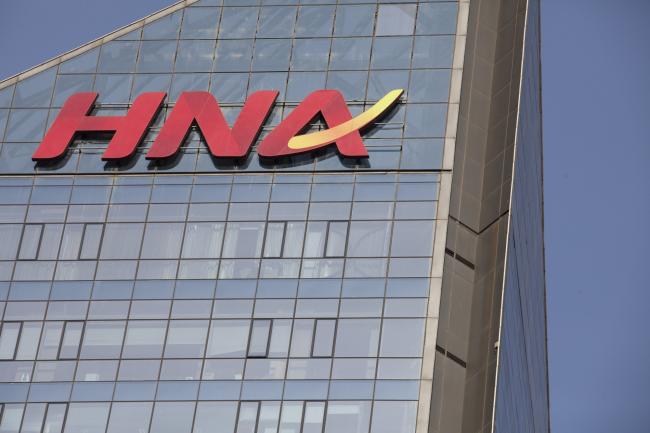(Bloomberg View) -- The latest news leaked out of China’s troubled HNA Group Co. is not good. Management has asked its employees to hand their paychecks over, with promises of big returns down the road. It is a pretty safe assumption that any company willing to try such a scheme is tottering on the edge of the financial abyss.
HNA’s woes present China’s leadership with a serious conundrum. The airline company has been one of the country’s highest-profile global dealmakers, investing in everything from Hilton Worldwide Holdings Inc. to Deutsche Bank AG (DE:DBKGn). Not only would its unraveling set back government efforts to foster global champions, it would also deal a blow to the balance sheets of China’s banks and to the local economy of the underdeveloped province of Hainan, where HNA is based.
Perhaps HNA can work out its debt problems (it’s already furiously trying to sell assets to raise cash). But if it fails, Beijing would be better off letting HNA go. The only way China’s policy makers can make the economy more productive and efficient -- both critical for future growth -- is to let the market, not the state, decide the fate of risk-gorged enterprises like HNA.
HNA, in fact, is a microcosm of a central weakness in the Chinese economy. As the group snapped up assets willy-nilly in recent years, it incurred debts of about $100 billion. (By one estimate, the figure could be significantly higher.) Its units have already missed payments to banks, its borrowing costs have been rising, and trading in several of its listed entities has been suspended. Even its chairman has admitted that the company’s investment binge has led to a cash crunch.
So how exactly did a company with murky ownership, which operates a mediocre airline and is based on an island known for beaches, not big business, come to amass so much debt? HNA’s operations are opaque, so we can’t know for certain. But there really is only one possible explanation: In China, where the state controls the financial sector, money too often moves based on politics, not productivity. If a company is thought to be following government priorities, or has state backing, bankers and investors tend to consider it a safe bet. And one of HNA’s main creditors is China Development Bank Corp., a state-controlled policy bank.
This is dangerous. One reason that productivity gains in China have slumped is that money too often flows where it shouldn’t, to support bloated state enterprises, debt-laden “zombie” firms, or the whims of politically connected businessmen. The only convincing way to break that perceived connection between politics and creditworthiness is to allow a big enterprise thought to be supported by the state to tumble.
South Korea offers an instructive example. There, too, bankers believed that the large family-managed conglomerates, called chaebol, were supported by the state. The chaebol were supposedly doing the government’s bidding by developing the economy and building industry, and therefore were implicitly too important to fail. That allowed them to vacuum up capital and finance and take on huge quantities of debt, often for misguided projects with little hope of turning a profit. If you were an entrepreneur, or a consumer looking for a loan, good luck.
That started to change during the 1997 Asian financial crisis. Banks and investors discovered to their horror that the chaebol weren’t arms of the state after all. As one after another collapsed into bankruptcy -- most dramatically, the giant Daewoo Group, in 1999 -- the notion that the chaebol were invulnerable disintegrated, too. The losses were gut-wrenching -- the entire banking system had to be rebuilt. But money generally flows more intelligently in South Korea today, and it’s far easier for households and startups to get their hands on loans and capital. Performance among the country’s big enterprises has also improved.
China has to go through a similar process. But will it? Generally speaking, there aren’t enough defaults in the country, as the government and banks put a premium on financial stability. And it isn’t at all clear where the government stands on HNA. Last year, regulators probed loans made to HNA and other debt-ridden dealmakers, yet in December, the company claimed that it had the support of major creditors.
Sorting out the problems at HNA and other debt-heavy companies will be painful, yes, but in the end, the economy will emerge stronger. Until China smashes the perception that certain companies are in effect the same as the state, the wrong people will continue to invest in the wrong projects. HNA is a good place to start.
This column does not necessarily reflect the opinion of the editorial board or Bloomberg LP and its owners.
Michael Schuman is a journalist based in Beijing and author of "Confucius: And the World He Created."
